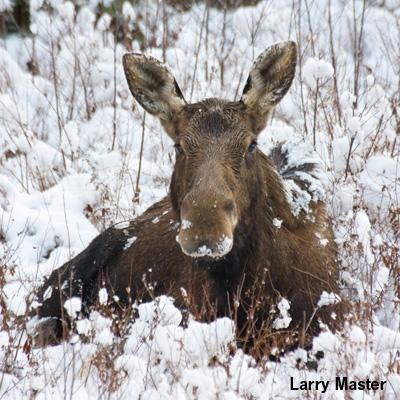Evaluating Genetic Connectivity and Re-colonization Dynamics of Moose in the Northeast

Historically native, moose declined throughout the Northeast with the arrival of Europeans. Due to hunting and land clearing, moose were extirpated from Pennsylvania, New York, Connecticut, Massachusetts, Vermont, and New Hampshire. A small remnant population remained in Maine. With establishment of hunting laws and re-growth of forest, the moose population slowly expanded in Maine, then New Hampshire, Vermont, and Massachusetts, and there are now an estimated 500-800 moose in northern New York.
Despite moose's recovery in the Northern Forest, little is known about how moose use the northeastern landscape and how important genetic connectivity might be for a population potentially founded by a few individuals with little genetic variation. To help with future management and conservation efforts for moose in the Northeast, NSRC researchers tested 293 tissue and hair samples and 140 scat samples to look at the genetics of moose from the Northeast and to understand relationships among regional sub-populations.
Researchers found distinct genetic differences between moose north of the St. Lawrence Seaway and moose south of the Seaway, suggesting that extensive development and roads around the Seaway may present a barrier to gene flow. This finding may indicate a true barrier to moose movement or a founding effect as most moose in northeastern states recolonized from the remnant population in northern Maine. Researchers also saw distinctions in the Cape Breton and Nova Scotia mainland populations. Overall, if interrupted landscape connectivity in the Northeast is affecting genetic flow, it could also hinder adaption to climate change. Future research should explore the northward movements of moose in the Northeast.
Download printable version [PDF]
Download full final report [PDF]
